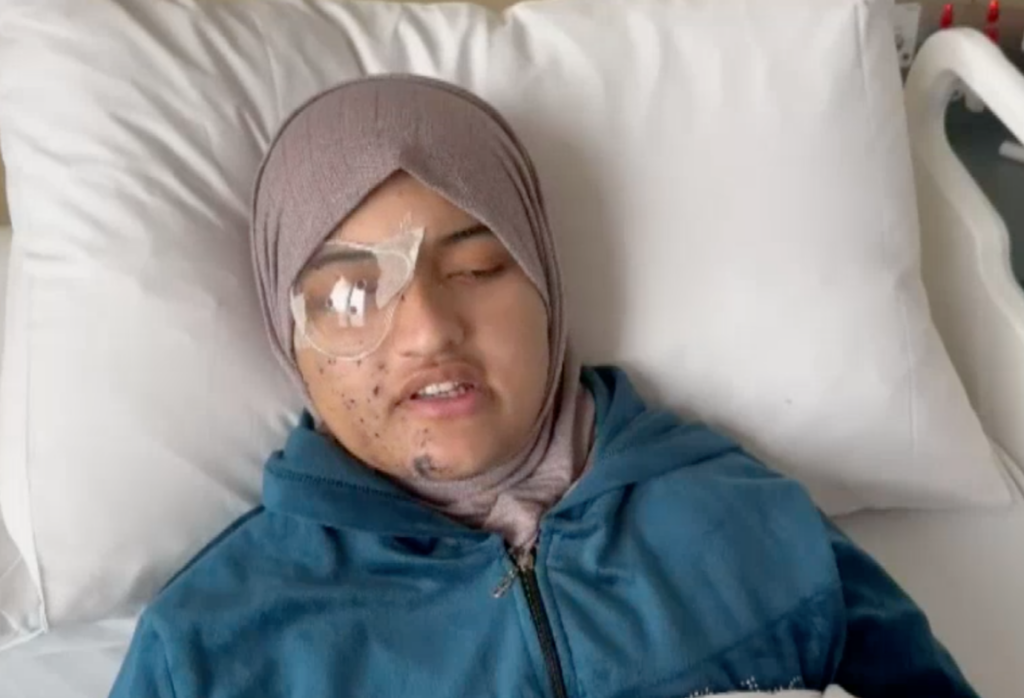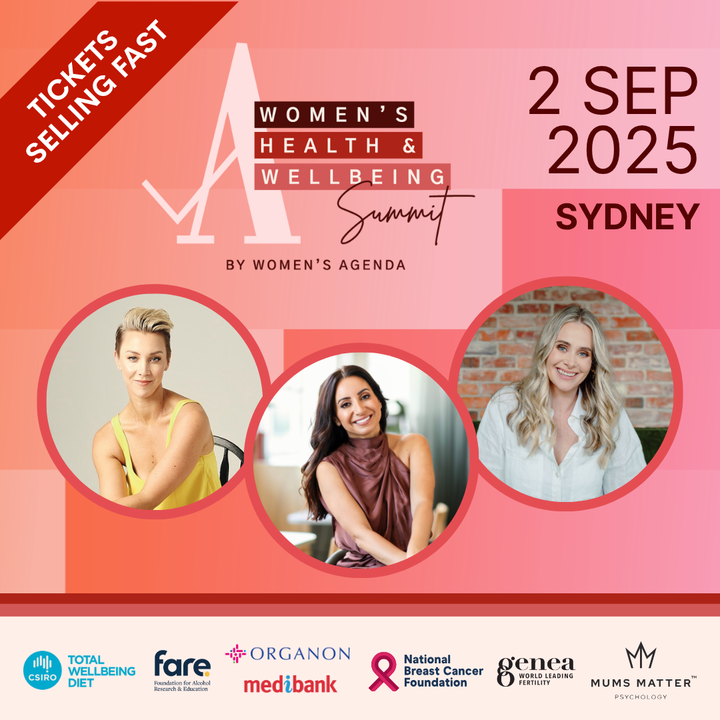Ten days after she was hit by shrapnel from a bullet fired into her student accommodation in the West Bank near Jerusalem, Palestinian Australian student Ranem Abu Izneid has returned home to Melbourne.
On Sunday, Ranem Abu Izneid was greeted by her mother at Melbourne airport, telling the media she was grateful to be home with loved ones, but concerned for her future.
“My dreams have come crashing down in an instant. It’s all over,” Abu-Izneid told the Herald. “I wanted to achieve my dreams of becoming a dentist, but I don’t think that’s possible any more. I don’t even look like me … I just want to be me again.”
On November 15, Abu-Izneid, a third year dentistry student at Al-Quds University, was hit by shrapnel after a friend was allegedly shot at by Israeli forces while they were studying in their student accommodation near Jerusalem. The university is situated in a non-combat zone in Abu Dis, in the occupied West Bank.
The bullet penetrated Abu-Izneid’s dormitory window, causing shrapnel injuries to her face, neck, scalp, chest and right eye. Israel Border Police have now confirmed they had fired live rounds into buildings in the West Bank town, but have stopped short of taking responsibility for her injuries.
In a hospital in Melbourne, where she is still receiving treatment, Abu Izneid said she is “experiencing significant pain and emotional distress” and “facing the prospect of multiple surgeries.”
“The trauma of the event and the uncertainty about my recovery are overwhelming, as well as the uncertainty of my future health and ability to continue my studies,” she told SBS News.
Her mother, Rana Abu-Izneid, has urged the Australian government to launch an independent investigation into the incident.
“We demand the Australian government formally and transparently investigate this,” she said on Sunday. “We are innocent civilians – she lived in a safe area. We could have never imagined this to be the case.”
“For me, she’s still a child. Just 20 years of age, suffering this … Since she was shot to this moment, it’s felt like years. She has been looking forward to being a dentist since she was 15 years old. I’m not sure if this incident will maybe stop her, but she’s brave.”
Abu-Izneid landed in Melbourne accompanied by her father, who had travelled overseas to join his daughter after her arrival in Jordan five days after the incident.
“Until the last day of my life, I will want her to be a dentist … I want to help her do whatever she wants,” he told the Herald. “She was so excited about studying.”
A day before her arrival back in Melbourne, her family released a statement, describing her as “an innocent civilian, caught in violence she has no part in.”
“We are calling on the Australian government, medical community, and public to support her recovery and raise awareness of the toll this conflict has on innocent lives.”
Abu-Izneid, who was born in Jordan to a Palestinian family, described the horrifying incident a few weeks ago when the bullet pierced the window frame of the fourth-floor apartment she was in.
“I looked at my friend, and she was covered in blood. Later on, I found out it wasn’t her blood; it was actually the blood coming out of my eye. There was blood everywhere, and I didn’t expect to live,” Abu-Izneid told the Herald. “No one should live this fear.”
The Islamic Council of Victoria issued a statement, calling on the Australian government to hold Israel to account for the “criminal act”.
“The Islamic Council of Victoria is horrified that an Australian student studying in Jerusalem could be seriously injured and nearly killed by Israeli forces while in her apartment in the Occupied Palestinian Territories.”
“We believe that the response from the Australian officials has been woefully inadequate, and we join the family in demanding a full impartial investigation into what took place.”
On Sunday a DFAT spokesperson said the Australian government was seeking further information about the circumstances of the incident.
“Owing to our privacy obligations we are unable to provide further comment,” the spokesperson said. “Consular assistance may include liaison with or visits to local hospitals, liaison with local authorities, provision of lists of medical providers and assistance communicating with family members or nominated contacts. ”


